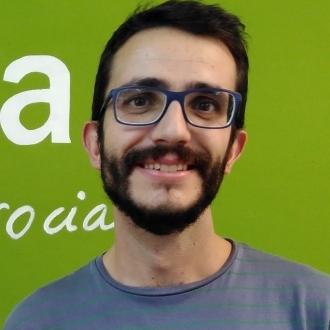
Every year, since 1993, the United Nations calls on us to celebrate the International Day for the Eradication of Poverty on October 17th. Nonprofit organizations must continue our work so that one day, sooner than later, we can say that on October 17th there is nothing to celebrate.
Every year, since 1993, the United Nations calls on us to celebrate the International Day for the Eradication of Poverty on October 17th. This date “constitutes an opportunity to recognize the efforts and the fight of people living in poverty and for these persons to make their voices and concerns heard, as well as to recognize that people in poverty are taking the lead in the fight against poverty”. Today, twenty fours years after this date was first celebrated, we have not managed to conceptualize, understand and measure what it really means to live in poverty beyond what is said by the AROPE indicators (At-Risk-Of-Poverty and Exclusion). However, ever since they were coined, these indicators have been biased since, for example, they don’t take into account the unequal distribution of wealth. The calculation of monetary poverty is done based on the total average, regardless of wealth concentration, and therefore the depth of poverty and the gap in revenue are totally neglected.
In recent years, we’ve seen policies emerging under which poverty is dealt with as an individual issue. Even if this subjectivity of poverty may allow dealing with each case in greater detail and adapt the responses to the concrete needs in each case, paradoxically, multiplying the voices of the poor makes this issue invisible and reduces the political and social effects of these policies.
Non-profit organizations, who are on the ground acting locally, face the challenge of celebrating 17th Oct. as the UN calls on us to do. We must act to recognize this leading role of many people living in poverty in the fight against this phenomenon.
Professionals at these non-profit organizations, and also all other citizens, must find paths that will open up professional, institutional and political practices to break down the dominant discourse and give birth to possibilities for change and transformation of the subjects.
The aim is therefore to do away with the dynamics of subjectivity to offer spaces where, as Marina Garcés says, it is possible to use the pronoun “we” in a sustained manner. Spaces where words take a prominent position and are listened to, not just monitored and assessed. Spaces where one’s personal subjective experience, for once and for all, is shared and helps to empower all sorts of people, families, groups and collectives.
Creating these spaces means to reaffirm oneself in a position that leads us to take another step forwards in breaking down the imperative logics and to acknowledge the other. It means to continue building so that one day, sooner than later, we can say that on October 17th there is nothing to celebrate.



Add new comment